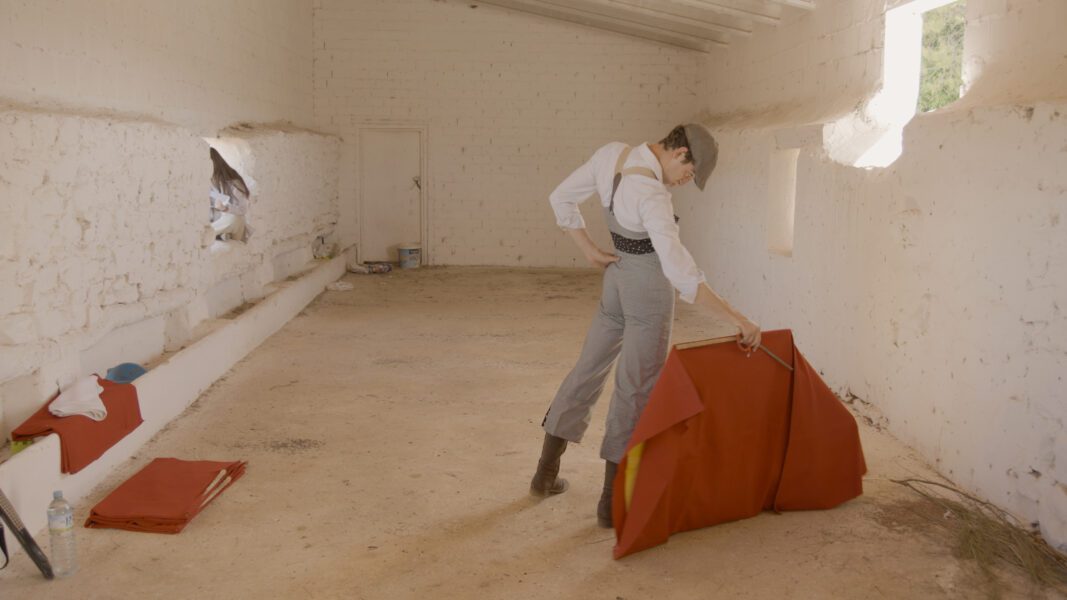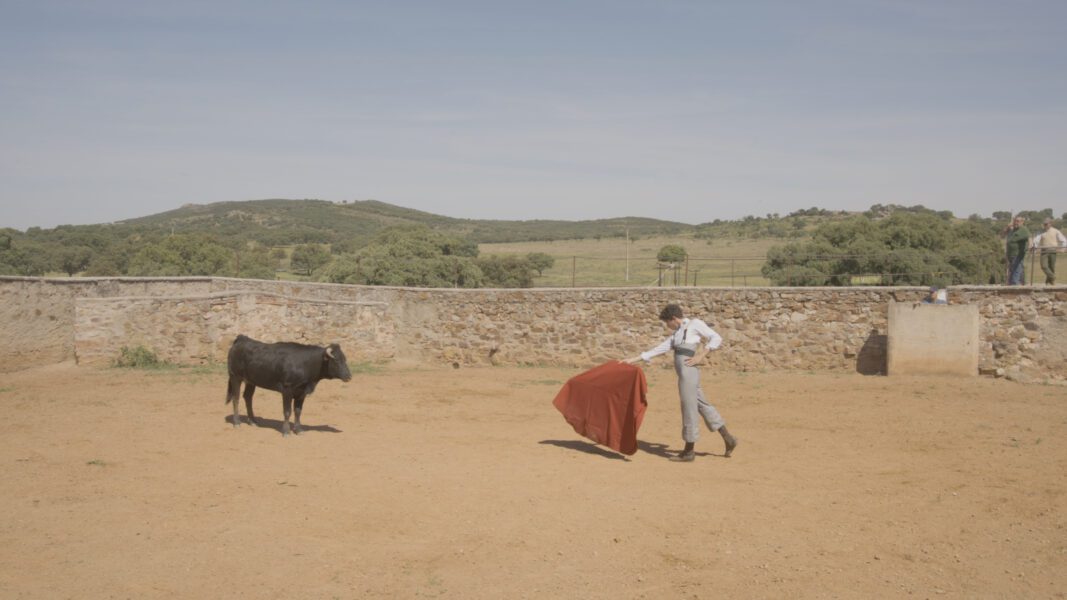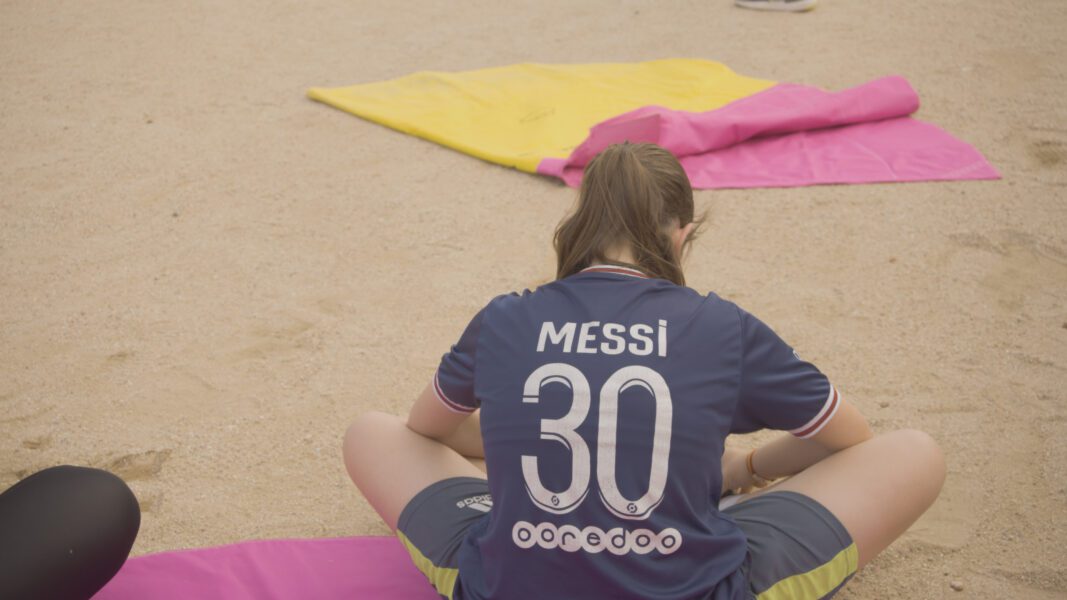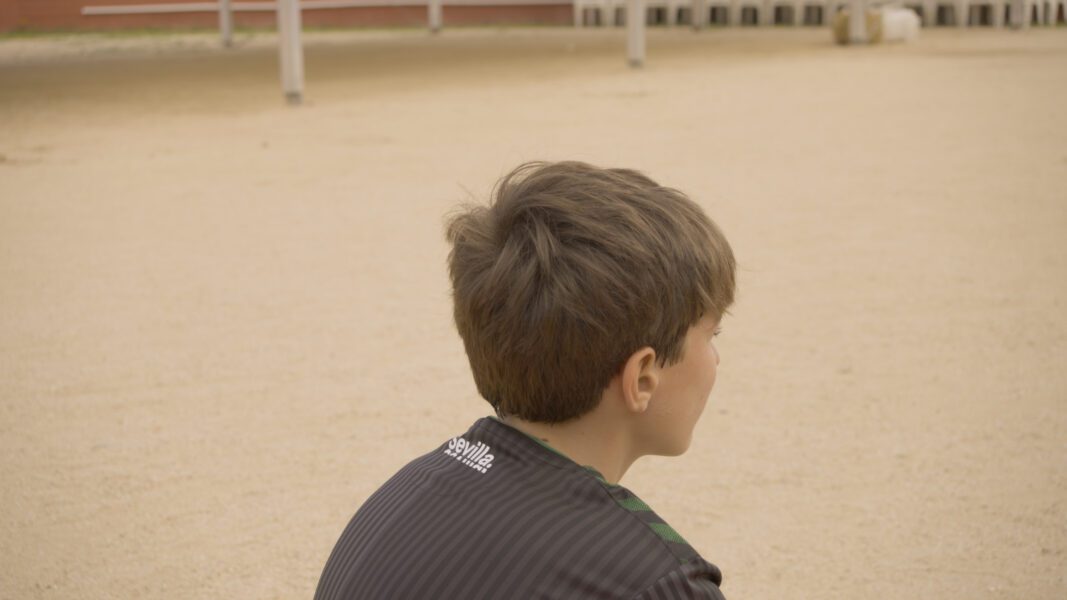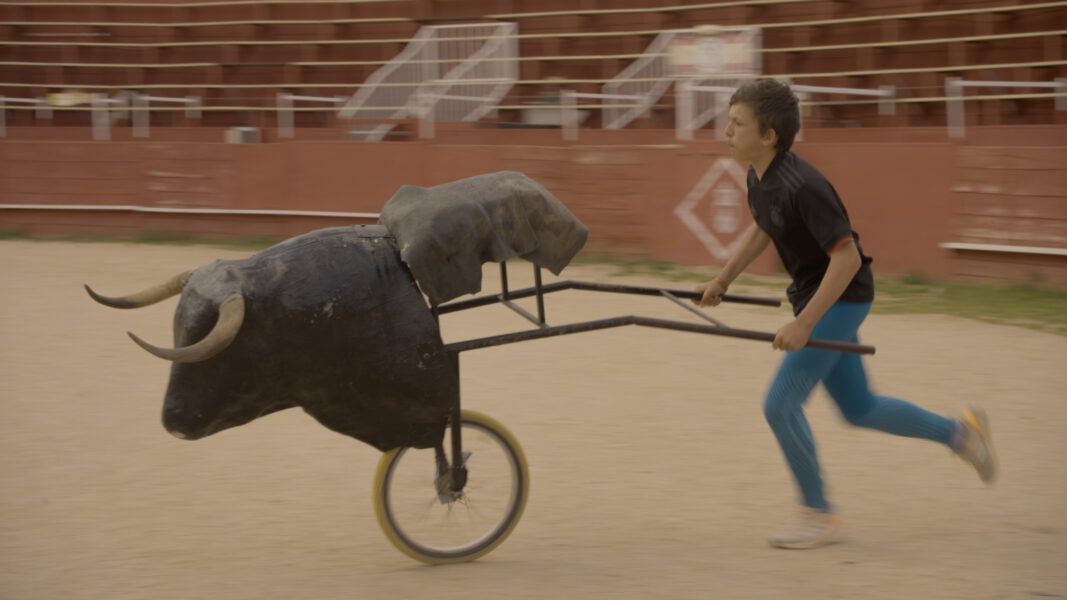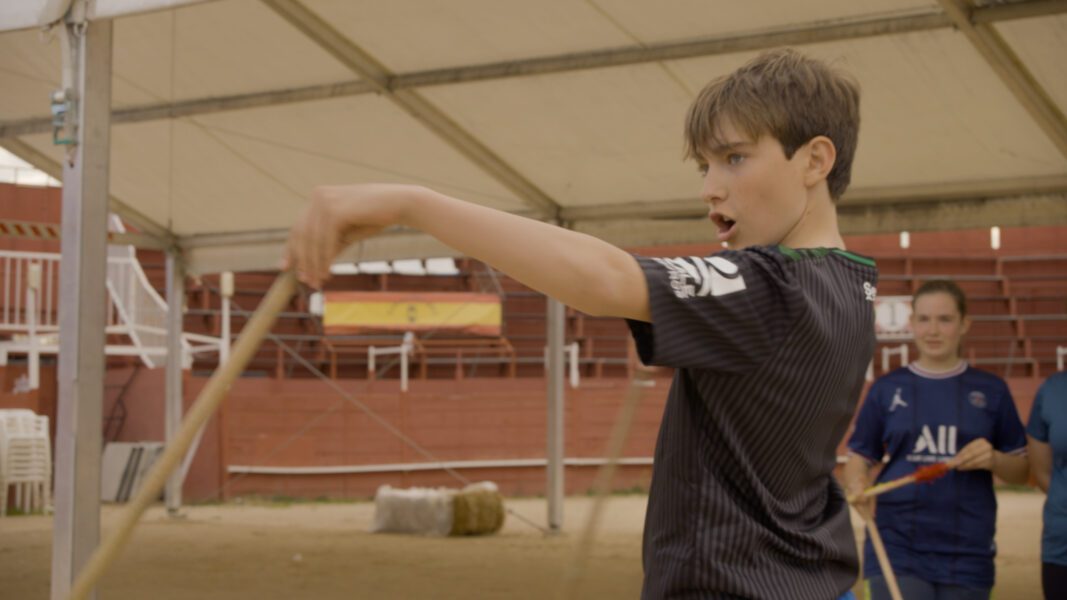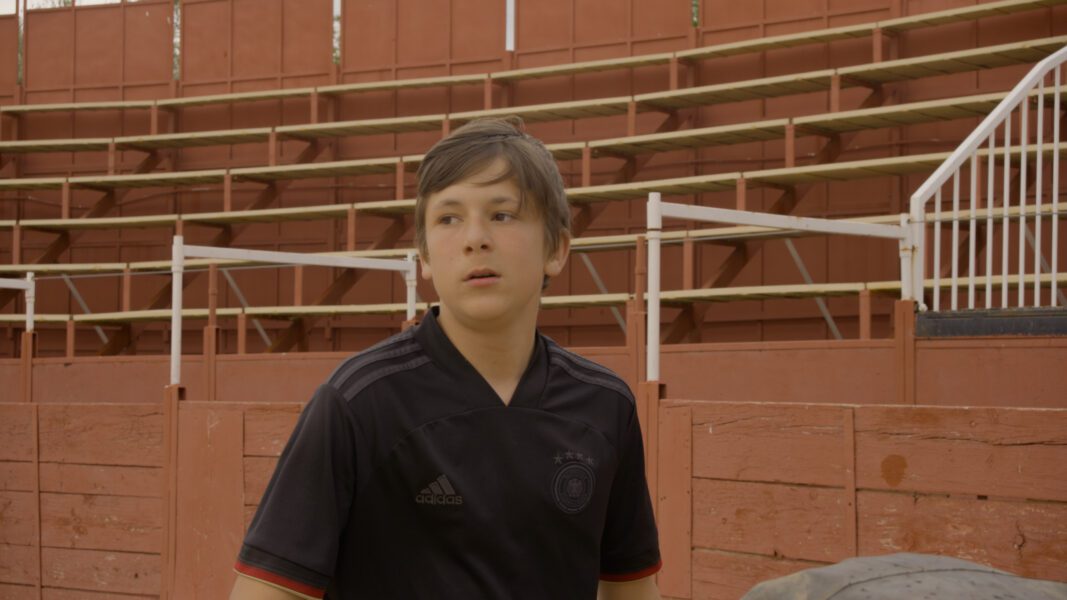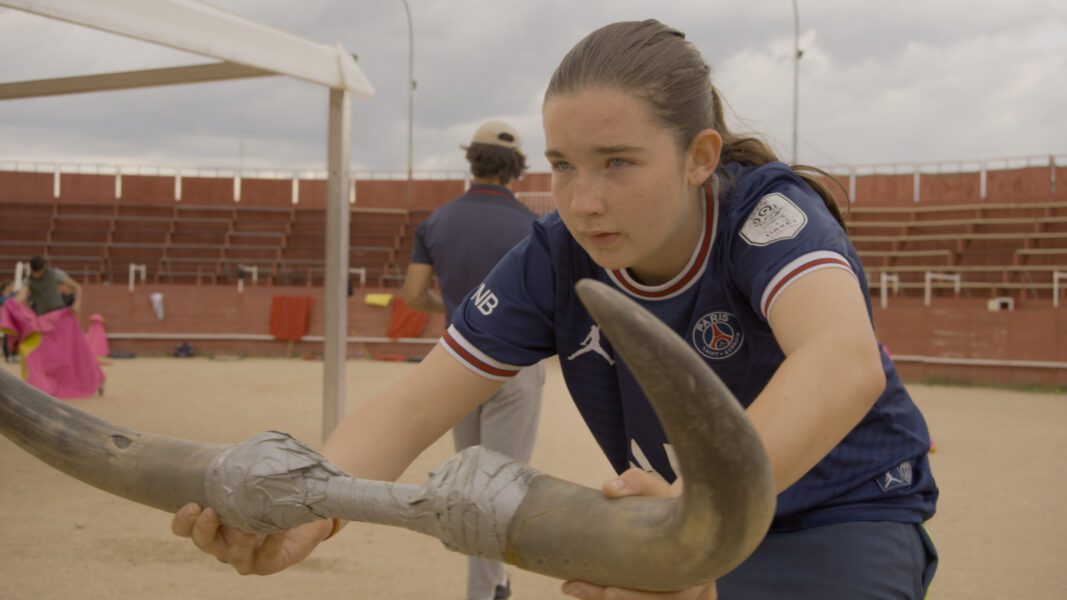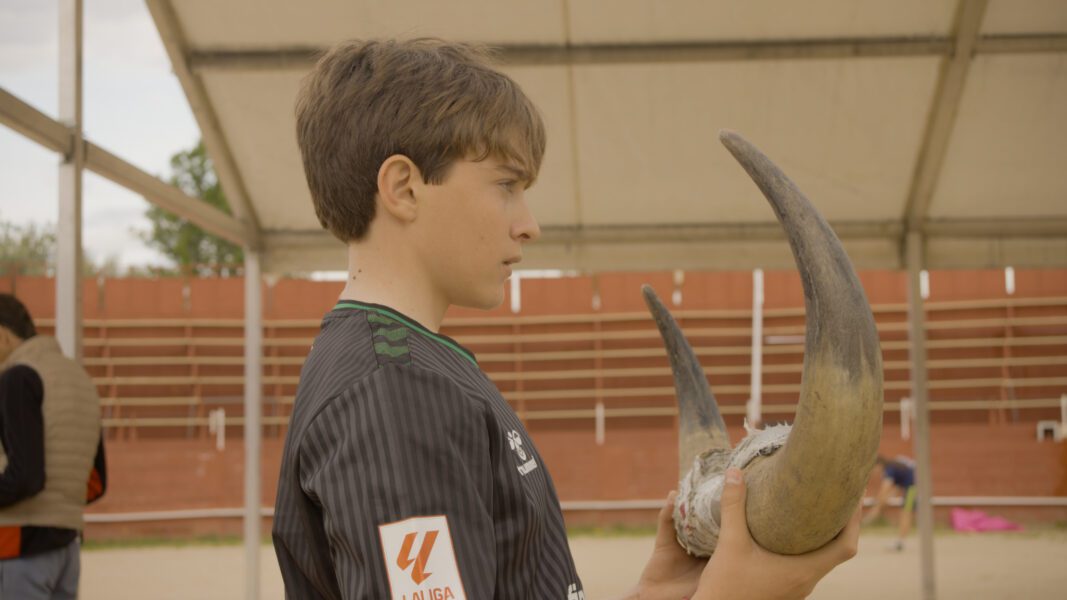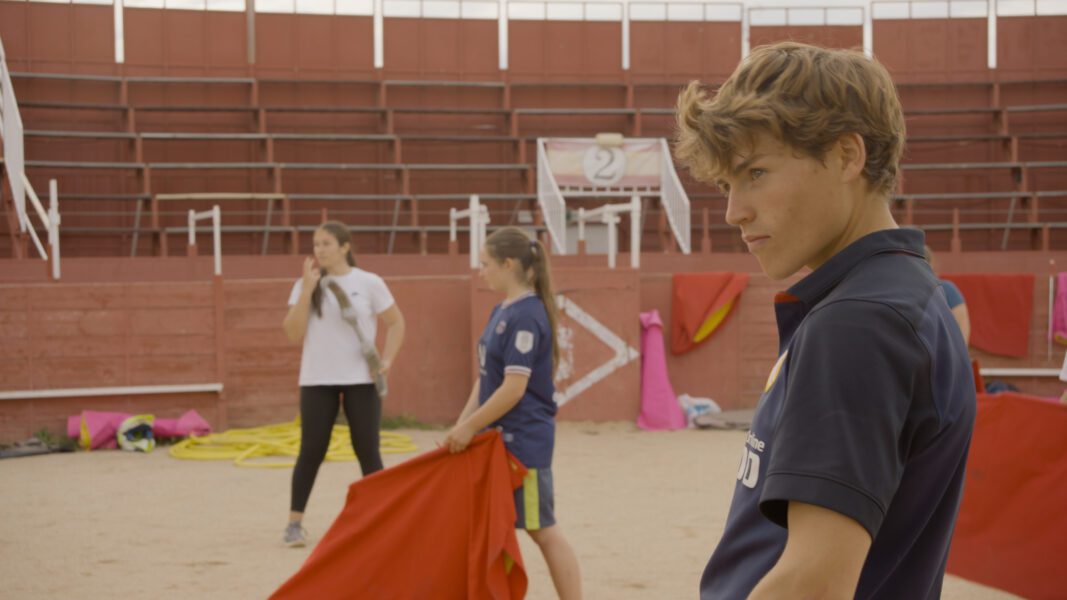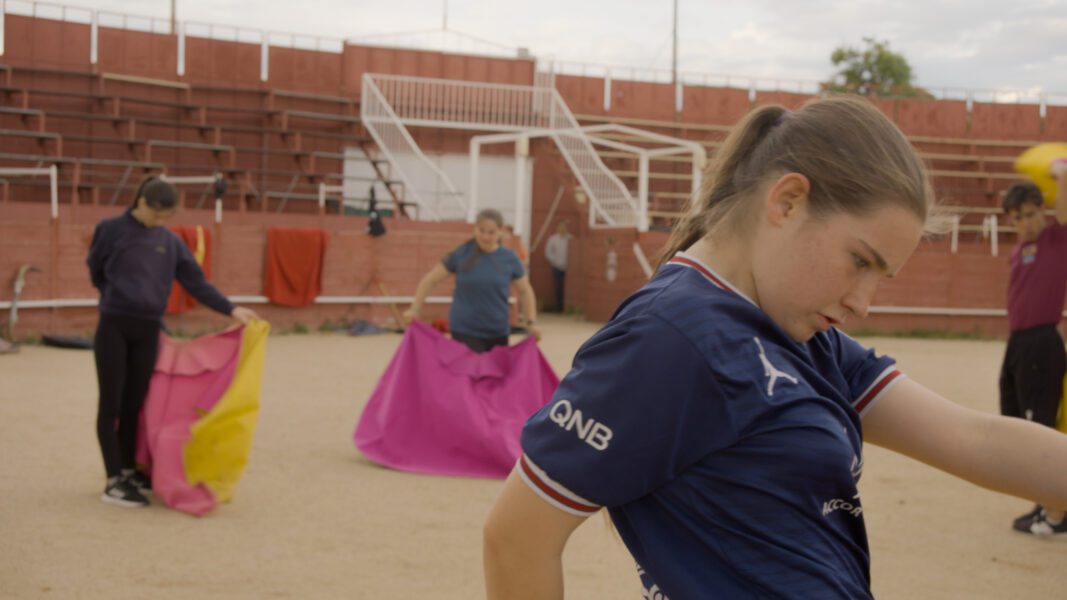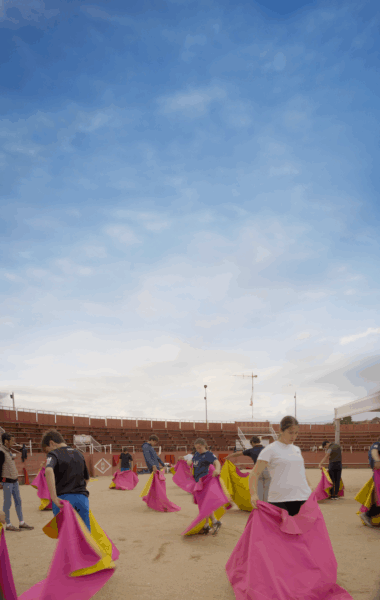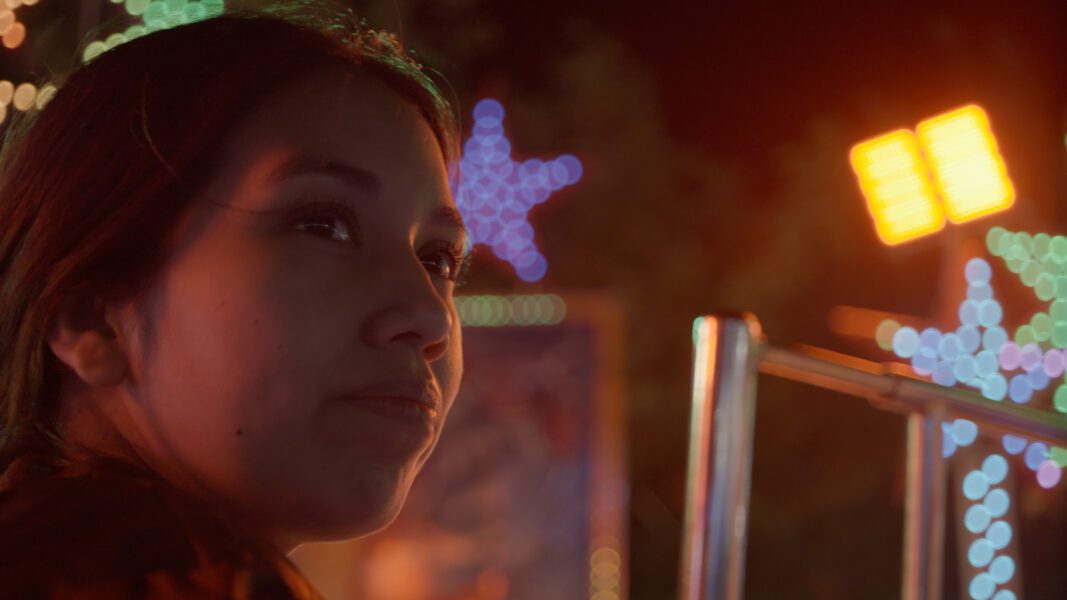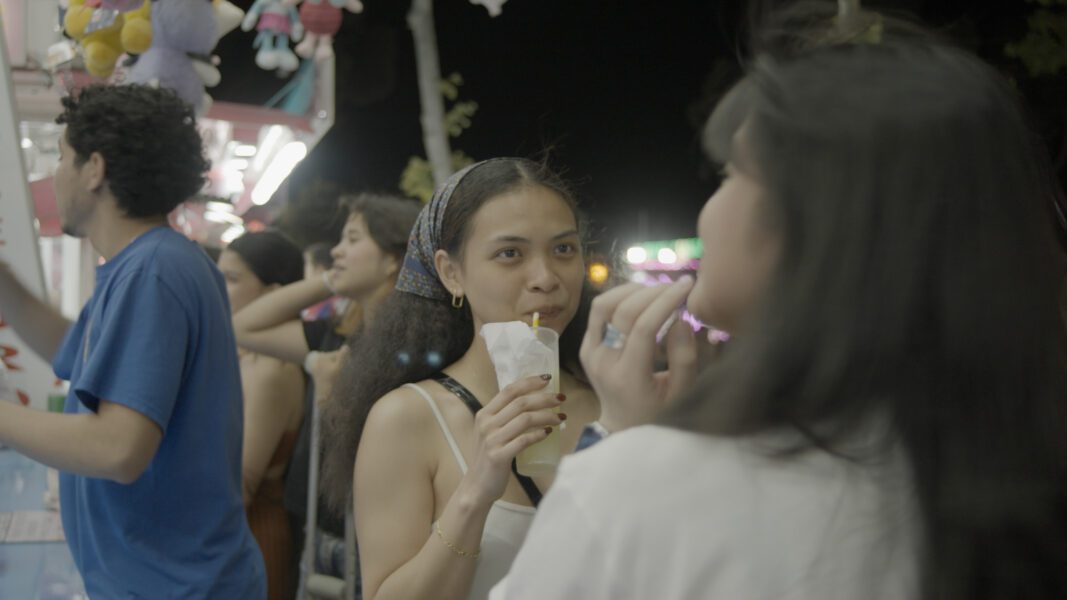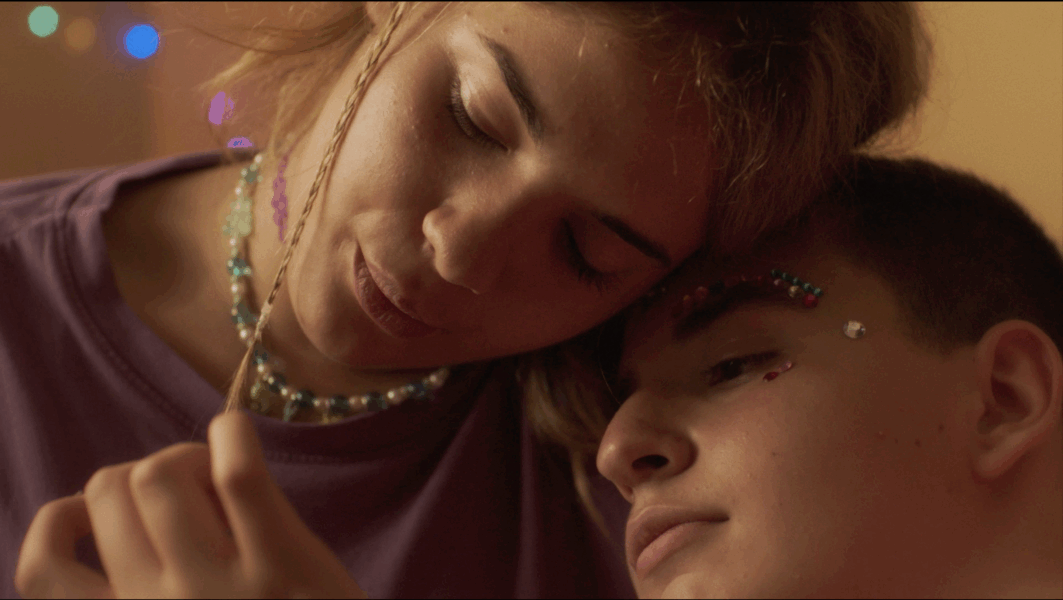EL CANAL DE
LA MANCHA
A Daniel Sánchez López Project
WITH THE SUPPORT OF
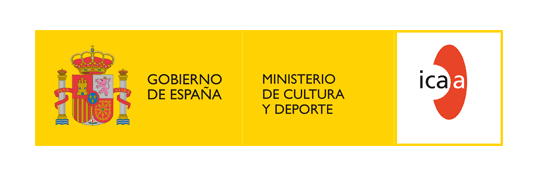


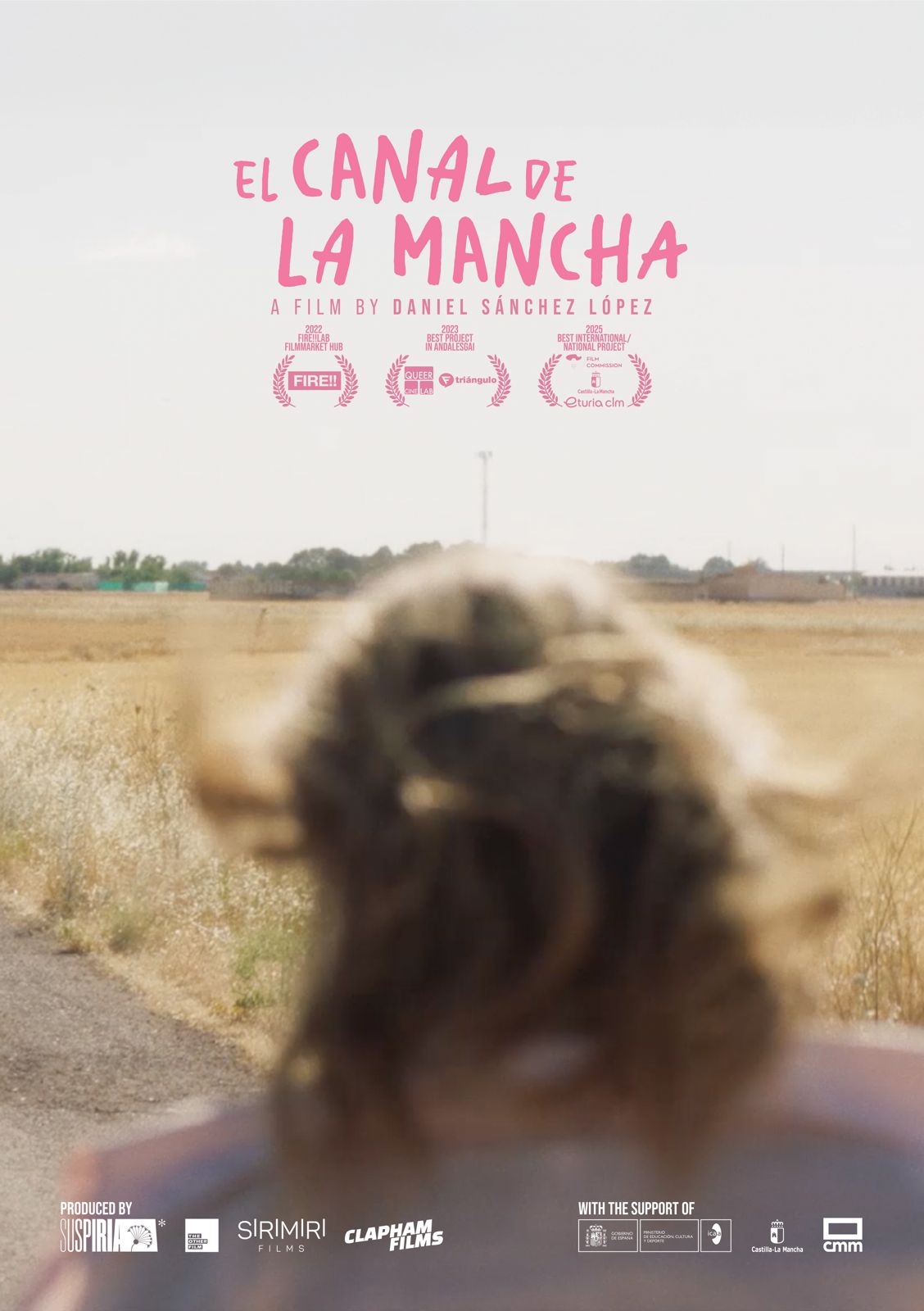
FACTSHEET:
TITLE: “El canal de La Mancha”
GENRE: Fiction
FORMAT: Digital
COLOUR: Colour
RUNTIME: 90’
LANGUAGE: Spanish, Romanian, English
DIRECTOR: Daniel Sánchez López
SCREENPLAY: Daniel Sánchez López and Hannah Renton
PRODUCERS: El canal de La Mancha – La Película A.I.E., Suspiria Films, The Other Films, Sirimiri Films, Clapham Films
EXECUTIVE PRODUCERS: Elena Orriols, David Torres, Estibaliz Urresola, Ignacio San Pablo
SYNOPSIS
Summer 2024. In a village in La Mancha, Lara and Roque, two 15-year-old misfit best friends dream of running away to the United Kingdom.
Lara, a Romanian immigrant working illegally as a nanny, searches for her identity while contending with her family situation. Roque, bullied in and out of home, works harvesting grapes for his father, who is a bull breeder.
While Roque rebels against his family and the cattle ranch, Lara joins Roque ́s father bullfighting school and finds support from the community and the people in there.. When Lara begins to make a name for herself in this field, their friendship will be severely tested.
At the end of the summer, the friends reconcile, but both they and their dreams have been changed forever.
INSTITUTIONS SUPPORTING THE PROJECT










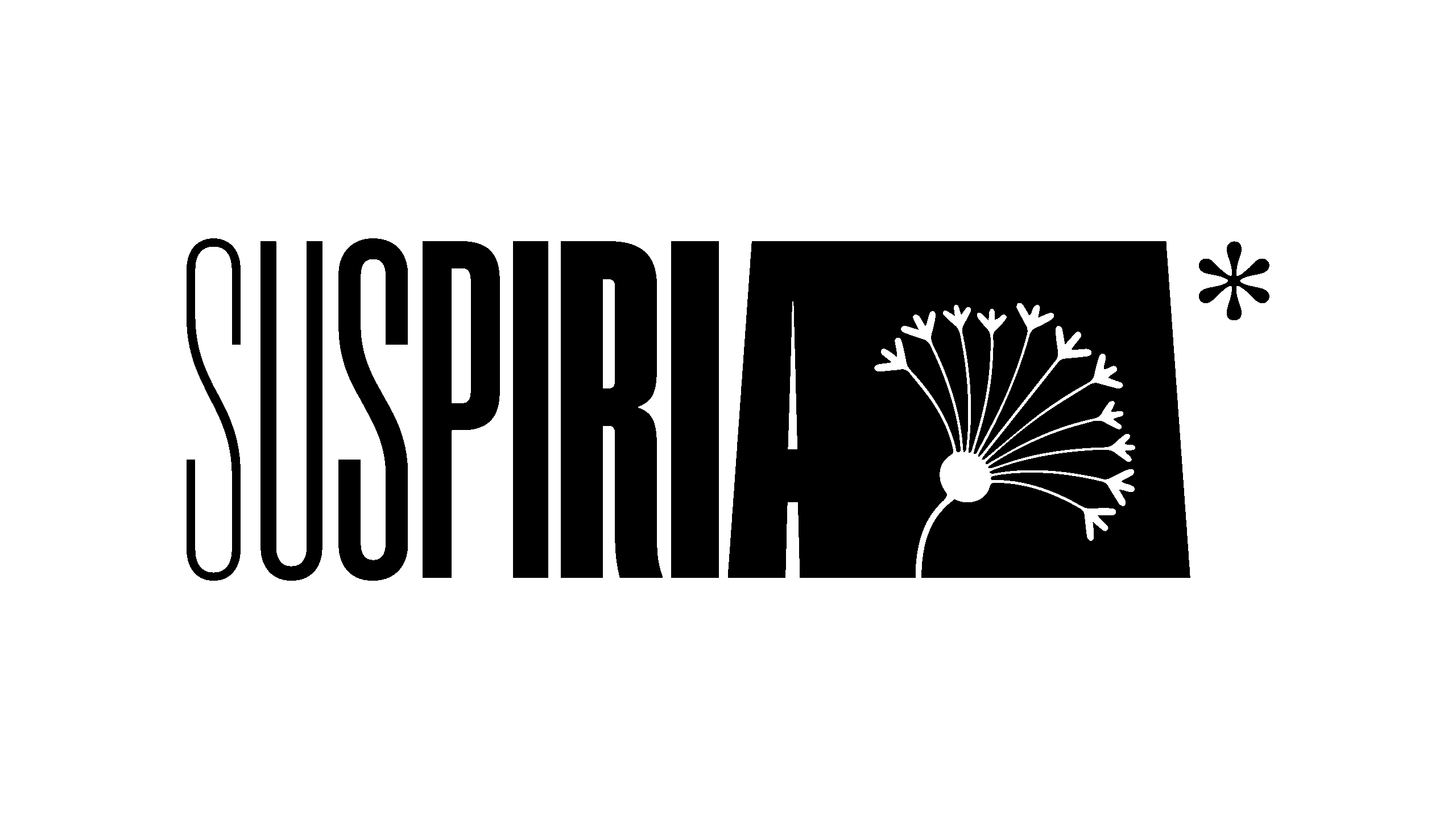




DIRECTOR’S NOTES
Twenty years ago, I left my village in La Mancha, and nearly 15 years ago I left Spain. While I was developing this story between Germany and Greece, I realized that the film was in part a search for my own identity. Like Roque’s father, mine was a bullfighting enthusiast. He died when I was young, leaving me with unanswered questions: Did he know I was gay? Would he have cared? Who was he outside his role as my father? I wrote this story to make peace with these absences and to understand what it means to belong.
I grew up in the 1990s with no visible queer role models and I endured homophobic bullying in school, experiences that sowed my deep need to tell this story. While developing it, I talked with local teens and the Romanian community in my village, which currently makes up one-fifth of the young people and is barely represented in Spanish cinema. Their stories broadened my perspective on identity, migration and roots.
The film covers four deeply personal interconnected topics: the search for home and identity; a critical reflection on violence; a positive representation of queer and immigrant experiences in rural settings; and a celebration of friendship. These components intertwine in “El canal de La Mancha”, a tale of two non-conforming adolescents who learn to live with their difference in a place not designed for them.
“El canal de La Mancha” is not a geographic space, however, it is rather an emotional state: the journey of an emotional bond in upheaval. In a loving yet cruel, modern yet traditional, matriarchal yet sexist society, friendship, like film, becomes an act of healing. This film is an homage to those who truly accept us, and in doing so, transform us.
